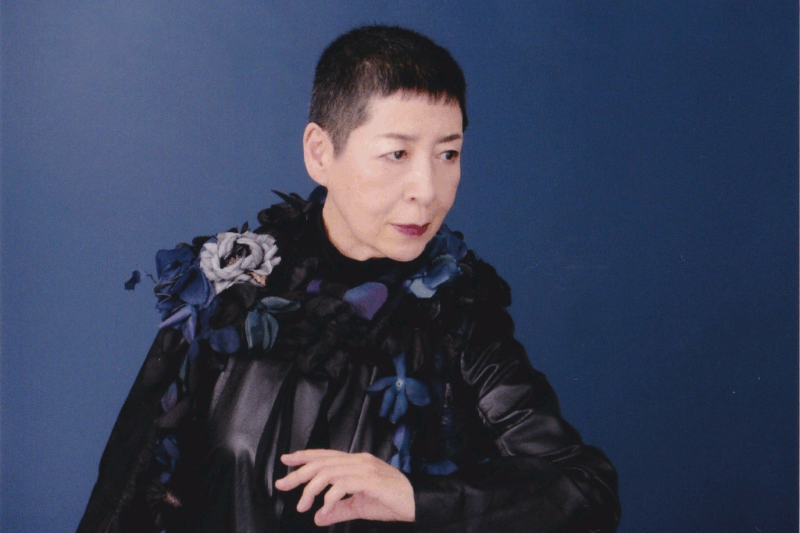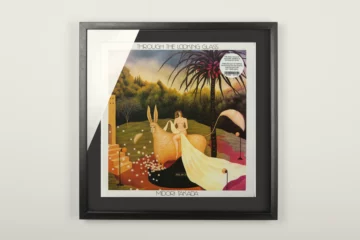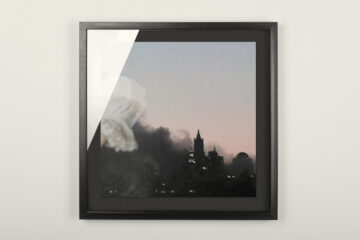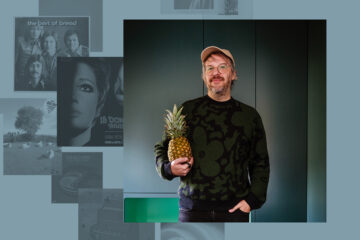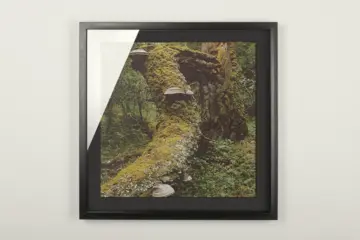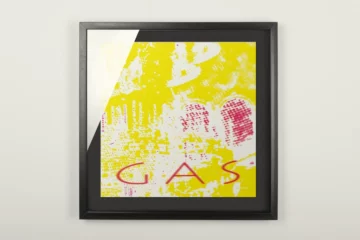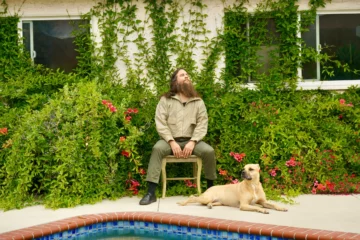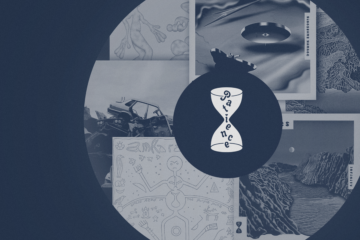The daily jubilee announcements about the renaissance of vinyl – especially in terms of revenue generation – do not break. With the increased demand, the commentaries at Discogs, Youtube and co. also flourish. We’ve all read these short shreds for out-of-print or no longer available records like »We need to do a repress asap,« »I need that record so bad« an and smiled at them here and there.
The same is true of journalism. If the repress of a certain record is announced, writers manage to help themselves with the information that the record is particularly sought or diggers worldwide had the record in their wantlists for ages. As if it wasn’t just about the music, it was just about their value. Also with us. And especially with Midori Takadas »Through the looking glass«, which is now re-released by WRWTFWW Records in cooperation with Palto Flats.
Yet »Through the looking glass« is an exception. Sure, the debut album released in 1983 by the then 32-year-old Japanese artist is one of those works that, if you find a copy of it at all, will only change ownership at exorbitant prices. And even if the current perceptible increase in demand for Japanese music by artists such as Haruomi Hosono, Ryuichi Sakamoto, Hiroshi Sato, Yasuaki Shimizu or Tatsuro Yamashita fits, this is not the reason why “Through the Looking Glass” is focus again. No. This album is different. Different, because Takada’s drumming, which is so accurate and graceful, is a whole-body experience that even goes beyond. Because it’s one of these albums that puts the sensory perception to the test. »Through the Looking Glass« is not a normal album, the four compositions are a transcendent listening pleasure. And this experience is exactly as intended, which Midori Takada makes clear in our interview.
You can find the Music of Midori Takada at our [HHV Webshop](https://www.hhv.de/shop/en/midori-takada-reissues/i:D2S12SP11246.)
The first, which attracts the attention of the listener of your 1983 masterpiece »Through The Looking Glass«, is the cover. It shows a picture of the artist Yoko Ochida. In conjunction with the first composition of the album – »Mr. Henri Rousseau’s Dream« – it is directly related to the jungle pictures of the postindustrial master. Can you tell us something about the genesis of the cover, how does Henri Rousseau serve as inspiration?
Midori Takada: Here I must clean up first with a misunderstanding. The music on this album was recorded before it was decided to use the image for the cover of »Through The Looking Glass«. It was the staff of the record company who chose the painting from the work of Yoko Ochida. I did not know the actual work before the release of the album.
Nevertheless, during my childhood, I was very much attracted to the art of Henri Rousseau. Despite the creatures in this work of art, the air is a blissful stillness and ease, the atmosphere becomes present and even the breathing becomes noticeable. The more closely you listen, the hearing will also differ between the pictured object and the space. What I wanted to develop in this composition is the creation of this insight. Just as in a painting in which each color is applied individually to the canvas, I carefully pay close attention to every individual tone.
Unlike Henri Rousseau, who has never seen the jungle in his life, you have worked with African artists from Ghana, Senegal and Burkina Faso in the 1980s and traveled the countries. What would you say to Rousseau today?
Midori Takada: On the contrary to Rousseau I saw a spiritual relationship with the calm nature in his work of art. Rousseau ventured into an unknown, spiritual domain and created his pictures there. His fantasies, however, were not wigs of reality, but his own, deeply inner landscape. As I traveled through Africa, I was very moved by the drum sounds I experienced there that reminded me of elaborate structures that are spreading in the body. It is possible to say that these keys originate from quiet, spiritual architecture. In paintings and music there is a characteristic, whose vibration arouses the mind.
You are trained in classical composition, but also work with field recordings. On »Mr. Henri Rousseau’s Dream«, the bird voices are one of the most beautiful transcendental elements. To what extent does coincidence play a part in composition?
Midori Takada: There is a difference between chance operation and improvisation. Chance operation means that something might happen within a defined organized area. In that sense, after all the other sounds were finished being played, the bird sounds that are included were performed ad-hoc. I can say that in general during the recording of this album, there was nothing accidentally about it.»I can say that in general during the recording of this album, there was nothing accidentally about it.«
Midori Takada
»Crossing« with his repetitive and beautiful Marimba game is reminiscent of the minimal compositions of Steve Reich. The whole album evokes associations with possible sources of inspiration. Let us participate in the world of the young Midori Takada in the early 80s.
Midori Takada: During the 1970s and 1980s, many new types of music came into existence. More over, electronics dramatically evolved as well. But during this period, I think that there were not many musicians who made concerted observations towards the concept of minimalism. Many of the traditional musicians sought the avant-garde and musicians were called upon to deliver virtuosity. Minimal Music, where sound elements are scarce and seemingly does not look that polished, was recognized by only a few as a music of great possibility and artist who pursued were among a minority. It was looked upon for its technical aspect, for instance the repetitive element was partially incorporated but I think that its ideological or philosophical principle was not widely acknowledged as much. I perceived minimalism to be not an expression but a system. A system, for instance where small cells proliferate. Its value remains unchanged but still has the capability to subside.
The third piece »Trompe-l’œil« also bears direct reference to painting in its title. Thus, trompe-l’œil is the illusionistic painting which, by means of a perspective representation, pretends three-dimensionality. What illusion is to be aroused by the listener? In me “Trompe-l’œil” recalls an association with Rosseau again. The dream and lure of the jungle, although he can not escape France.
Midori Takada: With »Trompe-l’œil« I wanted to create an illusionistic painting with the means of the sound. The manipulation of the sound structure develops a shadow. I wanted to touch the spiritual landscape of every listener because I think that is something that is cheerful. This is something we all carry within us.
In an interview you gave about a concert in Warsaw, you called happiness as the primary goal of your music. Especially in today’s world political situation, the reissue of “Through the Looking Glass” appears as an important signal.
Midori Takada: Thank you very much. I hope that it is accepted in that way.
The re-release of »Through the Looking Glass« follows the albums of Yasuaki Shimizu and Mariah, both of which were released last year. All three albums have in common being released between 1981 and 1983. How do you explain today’s interest in Japanese music in this specific era?
Midori Takada: During this era in the 1980s Japan finally withdrew from the post-war economy. There was an insatiable desire for new things. Also in the music of each genre, there was a new tolerance towards experimental and new currents. At the same time, people looked optimistically into the future. Comparing this era with the present state of the world, it seemed like a dream. Perhaps it’s not the interest in the music from this particular era that was created in Japan, but the listener feels that the world has now lost something.
Back then, while trying to westernize themselves, Japanese musicians were at the same time suffering, stuck between their own culture and that of the West. From this time on, however, they were looking for something that connected them to the world. They were already feeling the problems of globalization. Perhaps it is the energy of this era, which today still looks fresh and lasting and fascinates people.
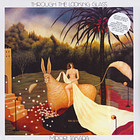
Midori Takada: During the ten plus years that I worked there, I never played »Through The Looking Glass« to my students. Every day, most of them work diligently, learning Beethoven and Bach and playing classical contemporary music. I had a responsibility to teach them so that they are able to make a living in this society. On the one hand, for students who were interested in my music, I set them as much as I can, to see a different world. But since my playing is not something that can be taught in school, so as a result, it has the capacity to confuse them. For me personally, for a very long time, I was out of standard! So, if I suggested to them to listen to »Through The Looking Glass«, they would most likely reply back to me, »Professor«, please show me the score for this music.” I think that music is something that people select and try to find with their own judgment. I think that it’s great to share one’s mentality with others but in a teacher-pupil relationship, it does not necessarily mean, it is essential to share everything with your students. In a current world with an existing information overload, if they want to listen to »Through The Looking Glass« , they should discover it by themselves.
You can find the Music of Midori Takada at our [HHV Webshop](https://www.hhv.de/shop/en/midori-takada-reissues/i:D2S12SP11246.)

